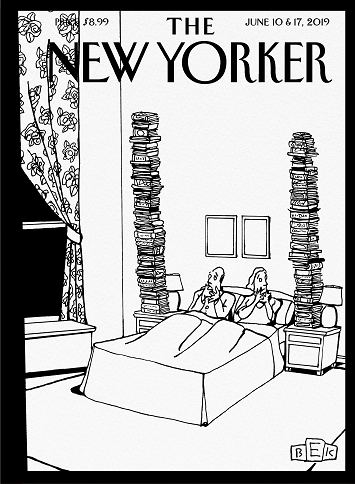
And here I thought I’d explode out of the starting gate, boldly proclaiming a singular angle for this blog, but it isn’t to be…just yet.
So while it percolates I guess I’ll just write on a smörgåsbord of topics as a diary of sorts for myself and my progeny: a future-proof, censor-free, character-unrestricted Twitter.
I’ll begin by wishing you and yours a…
…from this enthusiastic-but-unremarkable reader guilty of Tsundoku, the practice of buying a lot of books and letting them pile up because you intend to read them but haven’t yet.

Of course there are two sides to this equation, the acquisition side and the consumption side, and for me the issue is more the latter for the following reasons:
Reading consistency. I’ve improved over time, but I aspire to still better numbers. Tim Urban of Wait but Why fame makes a pretty good case for the power of consistently reading 30 minutes per day.
Reading speed. I’m not winning in this department either—especially when it’s too late at night and I’m nodding off whilst re-reading the same sentences—but I think sometimes I’m too meticulous and could stand to be more aggressive in my reading, both in terms of shelving books that aren’t delivering, as well as flying through certain types of books or certain parts of books as Ralph Waldo Emerson advocated, recorded in Robert D. Richardson, Jr.’s Emerson: The Mind on Fire (1995):
Along with Emerson’s freedom to take whatever struck him went the equally important obligation to ignore what did not. Emerson read widely and advised others to do so, but he was insistent about the dangers of being overwhelmed and overinfluenced by one’s reading. “Do not attempt to be a great reader,” he told a young Williams College student named Charles Woodbury. “Read for facts and not by the bookful.” He thought one should “learn to divine books, to feel those that you want without wasting much time on them.” It is only worthwhile concentrating on what is excellent and for that “often a chapter is enough.” He encouraged browsing and skipping. “The glance reveals what the gaze obscures. Somewhere the author has hidden his message. Find it, and skip the paragraphs that do not talk to you.”
Who knew Emerson was a speed-reader and skimmer of sorts? But at the end of the day he’s right: don’t peruse a self-help book as you would The Divine Comedy.
Library disqualification. I hitherto believed I wasn’t getting through books quickly enough (points 1 and 2) to take advantage of the public library, which caused me to acquire my own copies. But with my rejuvenated reading habit (and a moderately generous renewal policy) I could easily become a library reader because I can’t bring myself to desecrate margins with notetaking1.
I suppose if I’m successful at upping my throughput (points #1 and #2) but the public library doesn’t pick up most of that incremental volume (point #3), some pruning is going to be in order now and again, which (happily) implies lending and donating.
The techie in me is occasionally impelled to get an e-reader, but I’m too bibliosmic to abandon hardcovers, and some research suggests comprehension is 6-8x better on paper than on a digital screen2.
— ᴘ. ᴍ. ʙ.
This might be something I need to get over: some of the brightest people I know take notes in their books (and then are probably doing a better job retaining the content and making interesting connections). ↩
Altamura, L., Vargas, C., & Salmerón, L. (2023). Do New Forms of Reading Pay Off? A Meta-Analysis on the Relationship Between Leisure Digital Reading Habits and Text Comprehension. Review of Educational Research, 0(0). ↩